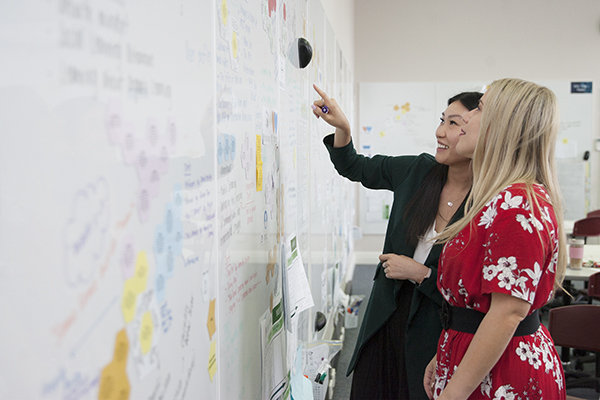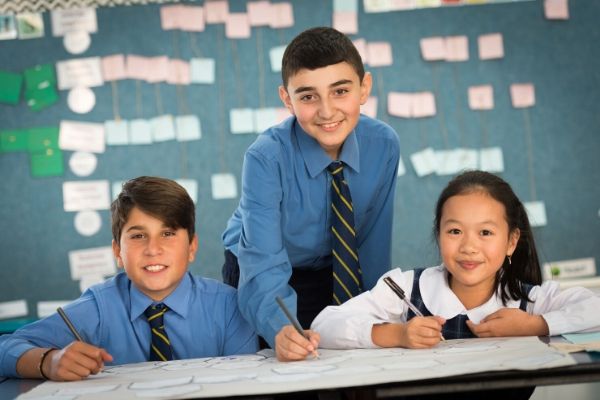 St Mel’s Catholic Primary Campsie has been recognised as one of Australia’s most innovative schools.
St Mel’s Catholic Primary Campsie has been recognised as one of Australia’s most innovative schools.
The school was among the 40 across Australia named today (4 September) on education publication The Educator’s annual Innovative Schools list for its Organic Learning Cycle.
The Cycle was developed by the school’s leadership team based on design thinking principles, which encourage problem-solving skills within learning, and introduced in early 2016.
Principal Steve Borthwick said the approach allowed students and teachers to make their thinking and learning visible, tangible and open to constructive feedback. Teachers and students use common words to describe the process so it is as clear as possible.
The approach is very visual, with students in Years 3 to 6 mapping their learning growth on a chart by identifying how competent they are at a topic or skill at the beginning and end of it.
To implement what we do in a school takes a different mindset.
Through this they learn to give feedback in a respectful way, and identify their peers in the classroom who can help them if they are struggling with a concept.
“Our Year 5 and 6 students find it so much easier to express themselves around their learning,” Mr Borthwick said.
“One of their goals now is to work out how to teach the younger students in Years 1 and 2 to express their understanding. They’re looking at how they as a student body can help other students know what they know, and do what they can do. It’s just awesome.”
Mr Borthwick said the aim was to “grow learners who can change the world” by being able to take control of their own learning.
“Christ changed the world. We want our students and teachers to believe they can do the same,” he said. “To help learners become ‘self-determined’ we work towards making the learning process as simple and clear as possible.”
He and the school’s Assistant Principal, Chad Ferris, presented their work at an Australian Council of Educational Leaders (ACEL) National Conference in Melbourne in October last year.
They will also present a workshop on Organic Learning at the Hawaii International Conference on Education in January, and have attracted international attention for their work through the Organic Learning blog they maintain.
It ensures that foundational knowledge and skills are explicitly learned.
Representatives from schools in Queensland, Victoria, Hong Kong, and Thailand have visited to see the organic learning cycle in action, while their blog following has extended to countries including New Zealand and America.
Mr Borthwick said for organic learning to work, schools and students needed to let go of their inhibitions and assumptions.
“We try to teach our students to have a growth mindset – to be positive and open to failure, to take risks and be able to take control of their lives,” he said.
“To implement what we do in a school takes a different mindset. The idea of organic learning is to flatten the leadership structure so that everybody becomes the leader, not just the principal or the leadership team.
“We have first and second year teachers here who are so confident and competent. Because they have so much ownership of what we do and capacity to deliver it they appear more experienced than they are.
“To have the opportunity to also present our work at the conference in January is really exciting.”
